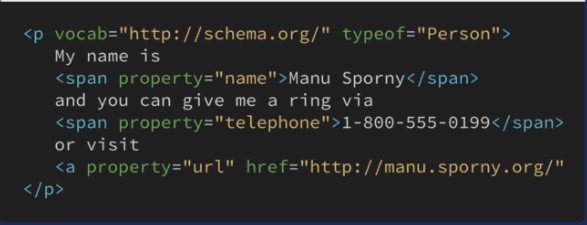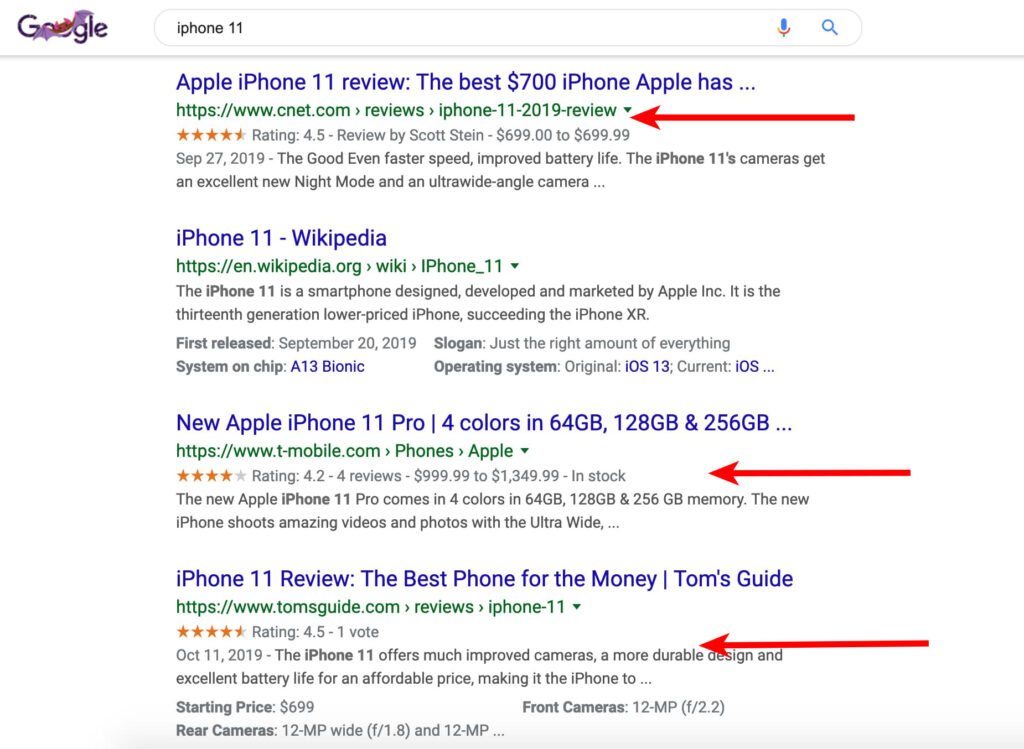When you search for something on, say, Google, you see your standard search results on the SERP. But some results — known as rich snippets or rich results — include further information from structured data included in their corresponding page’s HTML. One common example of a rich snippet is a review on a page in your search results.
What creates these rich snippets? Schema.
Schema markup is a piece of code that search engines can read to better understand your site’s content. This code is read by all the biggest players in the search engine world — Google, Yahoo, Microsoft (Bing), among others — and is used to help improve their own performance, as well as users’ experiences.
A good way of thinking about schema and structured data is provided by Yoast: “Where schema is the language in which you present your content, structured data is the actual data you provide.” In other words, structured data is what you want to communicate, schema is how you communicate it.
By adding this structured data to your site, its search results will be more informative and engaging to those scrolling through a search engine. The result is people are more likely to choose your results and engage with your site.
Types of schema
To begin with, there are 32 different types of schema markup. Which kind you use depends on your business’ niche and which will subsequently be the most relevant. Google lists them all here, but some popular ones are:
FAQ: As the name suggests, this lets users see answers to your site’s frequently asked questions via a dropdown option in the search engine results page.
Local business: This schema provides information about your hours, ratings, appointment bookings (if relevant), and other helpful information for users located near you.
Review snippet: If your site features reviews and ratings of your products or services, this markup shows your average star rating directly in the SERP.
Sitelinks search box: This is like the Sitelinks extension in Google Ads. It lets related pages on your site appear in the SERP along with the main page appearing for a user’s search.
There are of course many others (28 others, to be exact). You’ll recognize many of them, such as event listings, book reviews, course offerings, employer reviews and salary estimation, how-to’s, and more. As you can see from those examples, which ones are best for your business largely depends on what your business offers.
Generating and implementing schema
There are several resources to help you generate schema markup for your site. Google has an official data markup helper for just that, and there are also third-party tools such as RankRanger and Merkle that are free.
Once you generate your markup comes the next step of implementing it!
In order to do this, you’ll insert the relevant schema markup into your relevant HTML. Google pretty much always recommends using the language JSON-LD to do this, but you could also use Microdata or RDFa if you so choose.
After implementing this markup, you’ll want to test it to confirm it’s working right. Luckily Google’s got you fully covered in this department, with resources here to do pretty much all the work for you! They’ve got a Rich Results Test, which Google recommends you start with, plus their Schema Markup Validator. The former shows you the rich snippets that will be generated with your schema markup, after which the latter validates all general schema markup.
Adding schema to your site is an important small thing to improve your online performance; while Google says that schema markup itself doesn’t have an impact on your SEO scores, the rich snippets’ additional context engages more users, who then are more likely to visit your site through these search results. The end result is increased traffic, and users spending more time on your site, meaning these changes do improve your SEO rating.
Just like with so much in digital marketing, this is just one aspect of your work that will help inform users, build trust, and legitimize your business.






